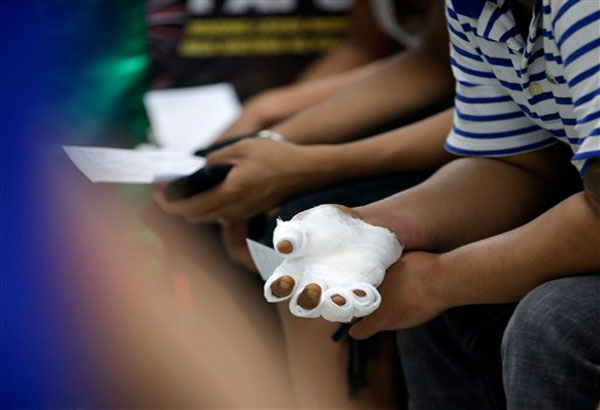'Study on night-biting dengue mosquito not conclusive'
Manila, Philippines - The Department of Health (DOH) said yesterday that it could not yet give credence to a 2011 study of the University of the Philippines-Los Baños about the dengue threat posed by a “secondary mosquito species.”
According to Manuel Mapue, DOH regional medical dengue coordinator for Metro Manila, “further studies” are needed to validate the findings.
“We can’t make any conclusion without further studies. It was not even mentioned what methodology was used,” he said.
Last Thursday, Philippine Association of Entomologists (PAE) secretary Barbara Caoili revealed that mosquito species Aedes albopictus is an “emerging important vector of dengue.”
Caoili claimed that while Aedes aegypti, the most common mosquito species that spreads the dengue virus in the country, usually bites during the day, Aedes albopictus bites both during day and night.
The expert warned that this means that the dengue threat is “now more serious” since the public can contract dengue “round the clock.”
She added that based on the 2011 study of UP-Los Baños commissioned by Green Cross Inc., the behavior of Aedes albopictus changed because its peak biting time had included the period between 11 p.m. to 1 a.m.
In a 1974 study, these mosquitoes were found to bite the most from 9 a.m. to 10 a.m. and from 5 p.m. to 6 p.m.
Caoili said while Aedes albopictus thrives in the forested area of Mt. Makiling in Laguna, it can be transported to Metro Manila.
She cited past literature that said eggs were brought from Japan to the United States in the tires of imported vehicles.
Mapue, however, said that the existence of Aedes albopictus is not new in the medical field.
“Even when we were still medical students, they were telling that to us... What is new, based on what she said, is that albopictus’ biting time is from 11 p.m. to 1 a.m. But we can’t make a conclusion at this point,” Mapue added.
- Latest
- Trending
































